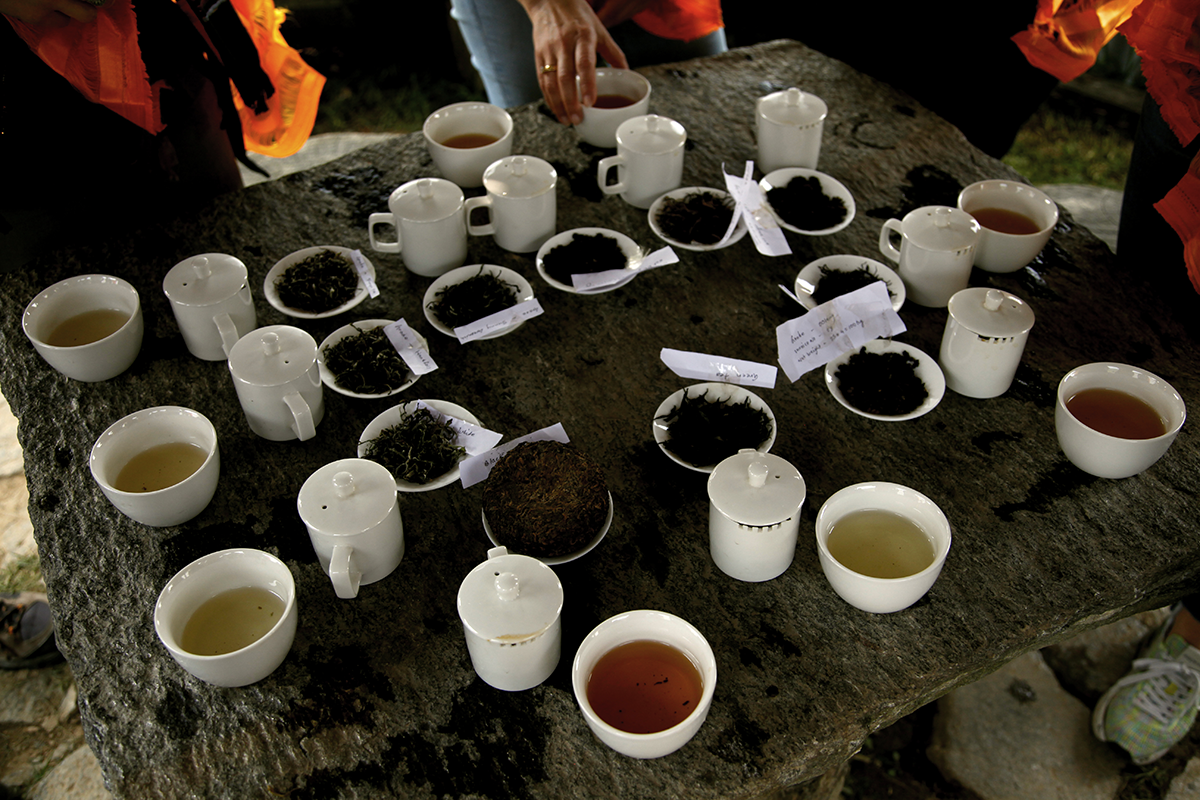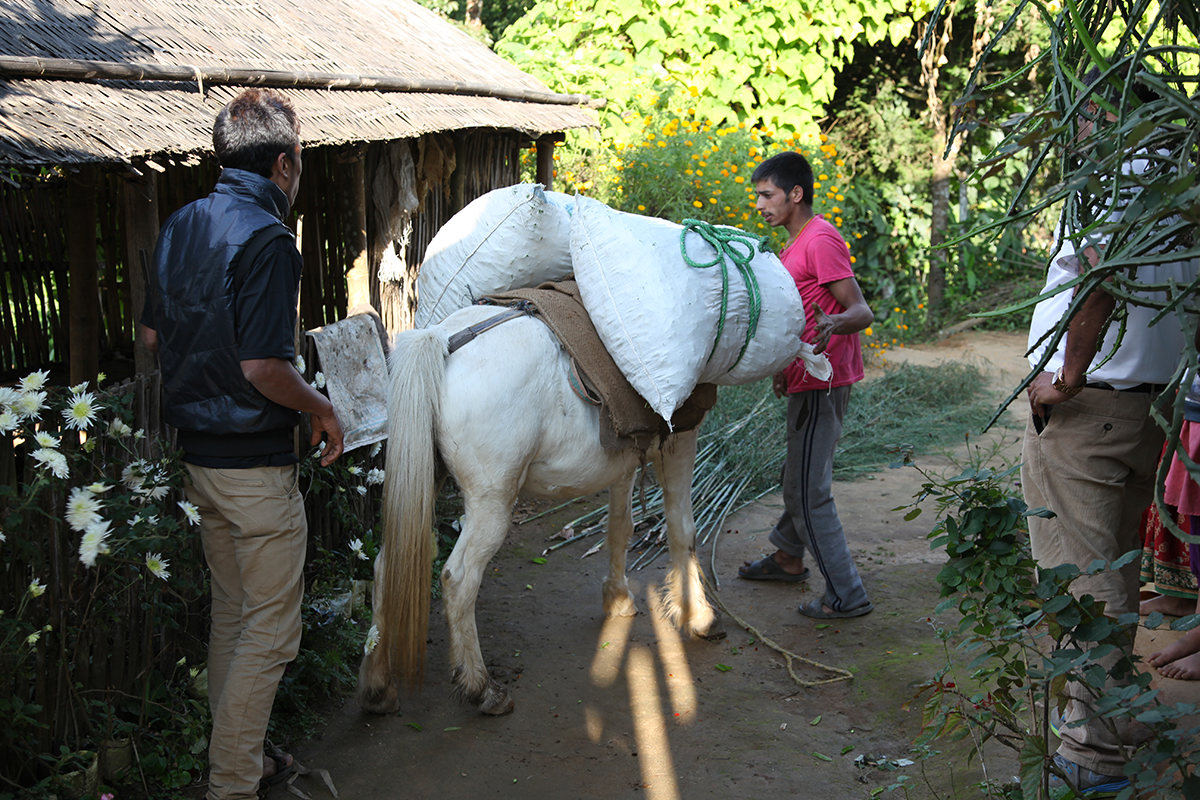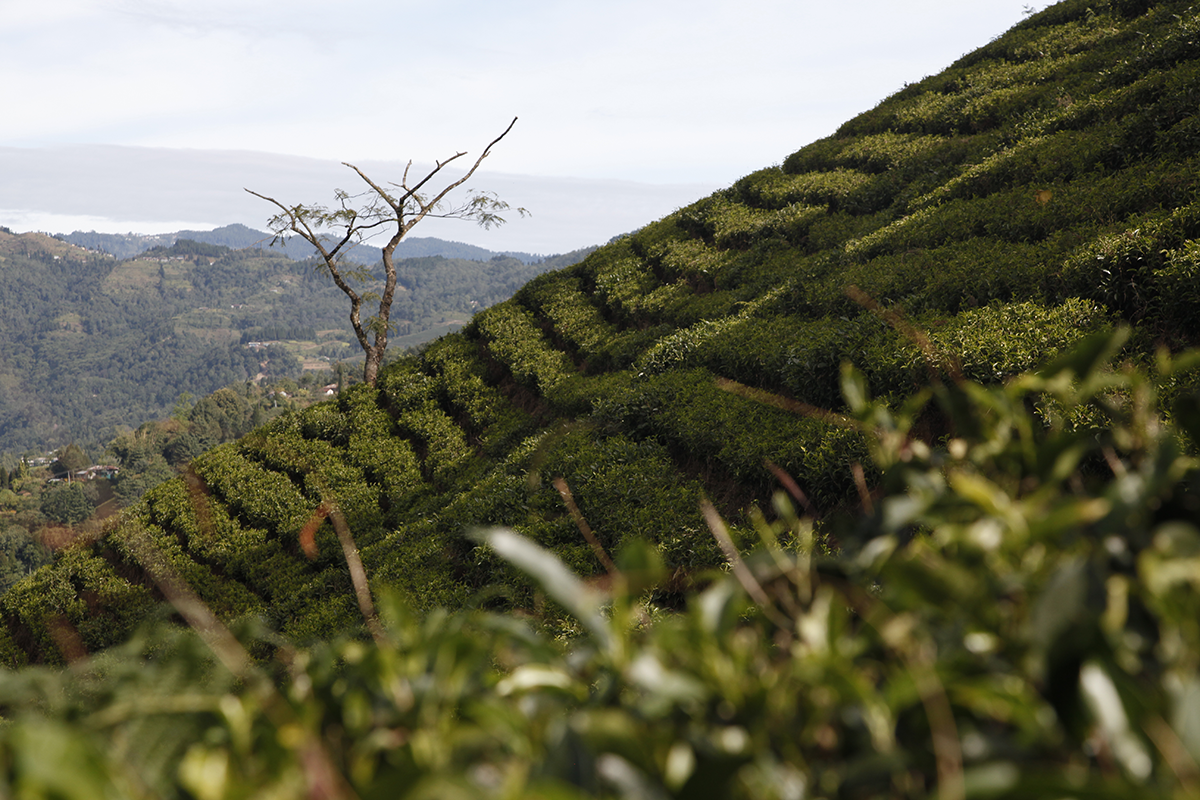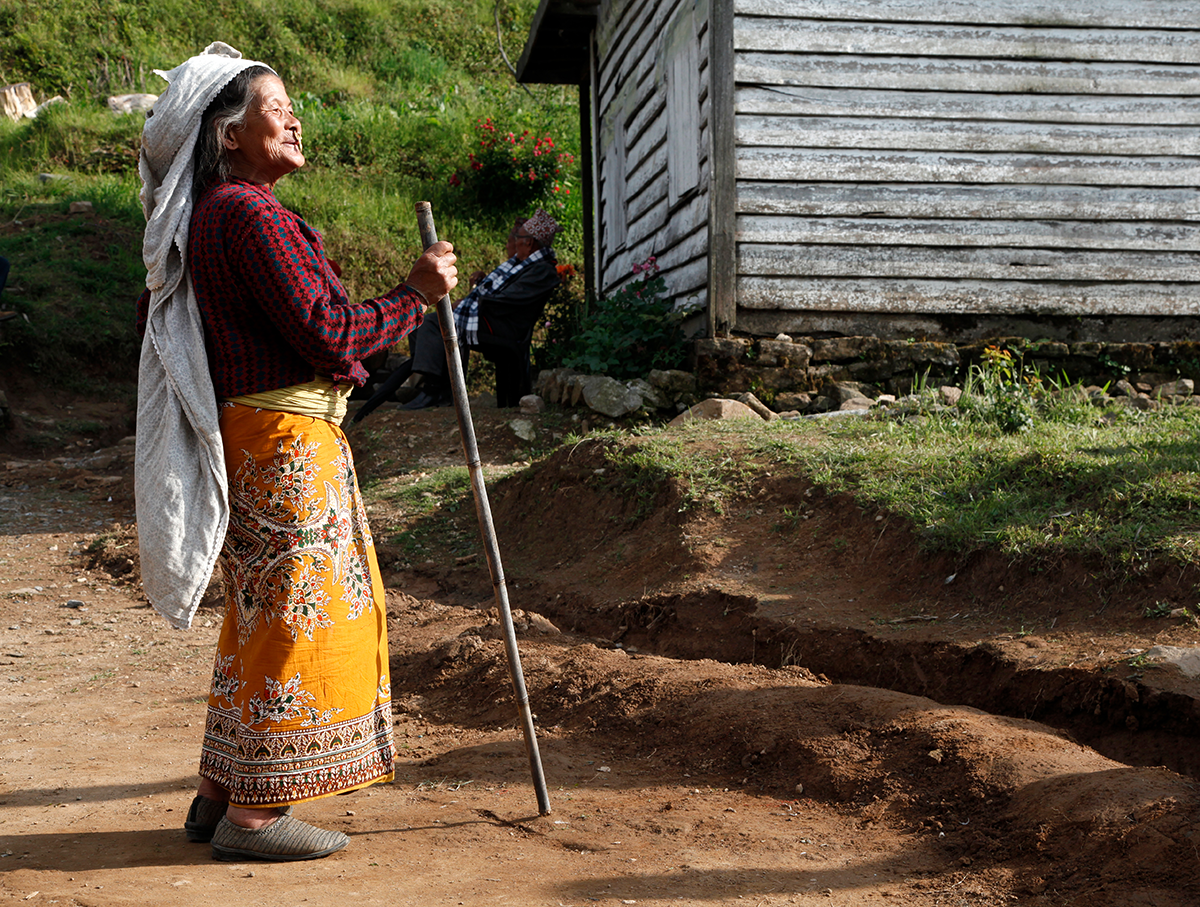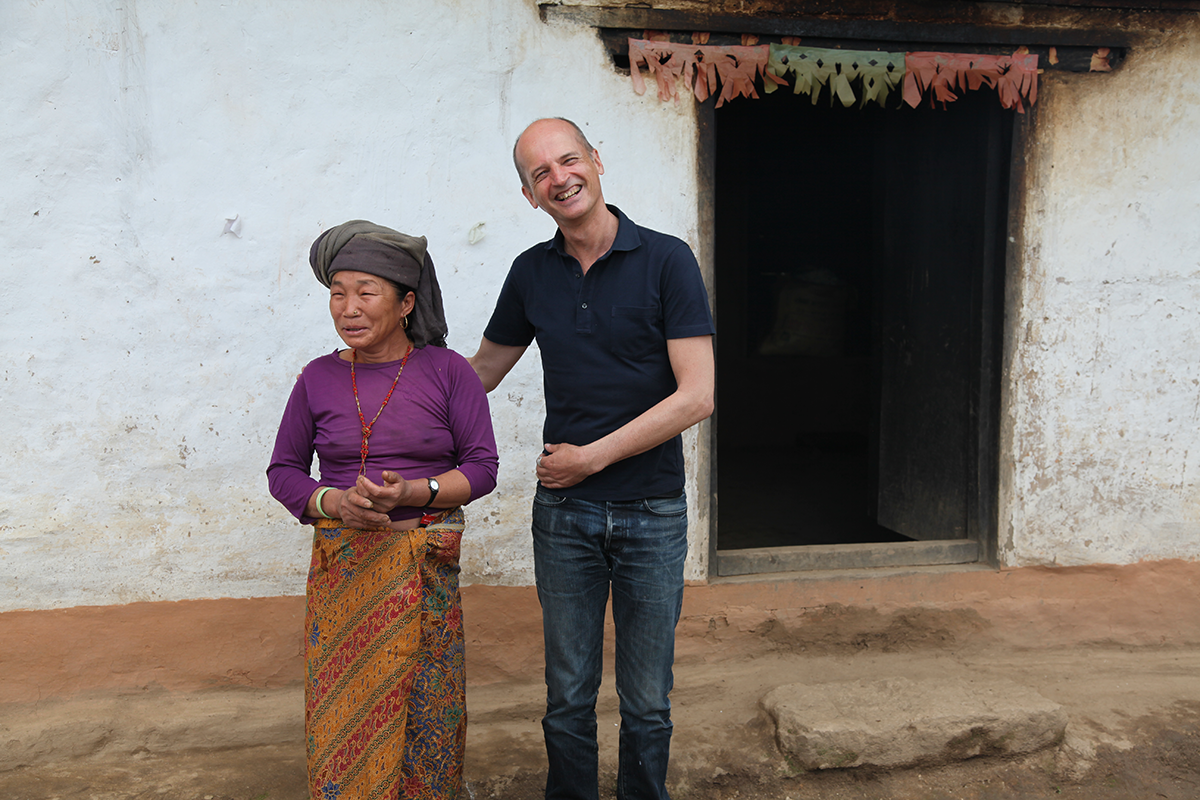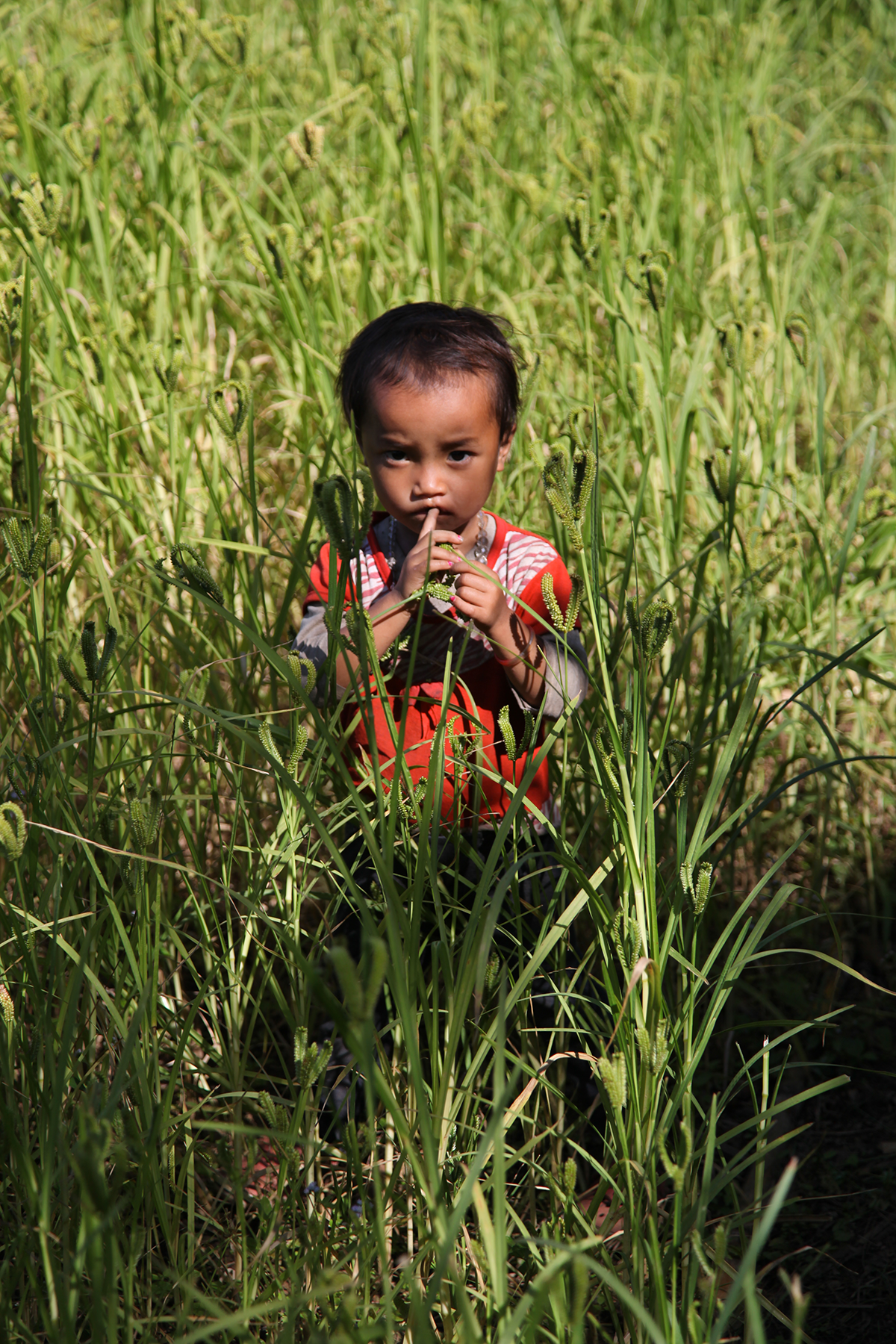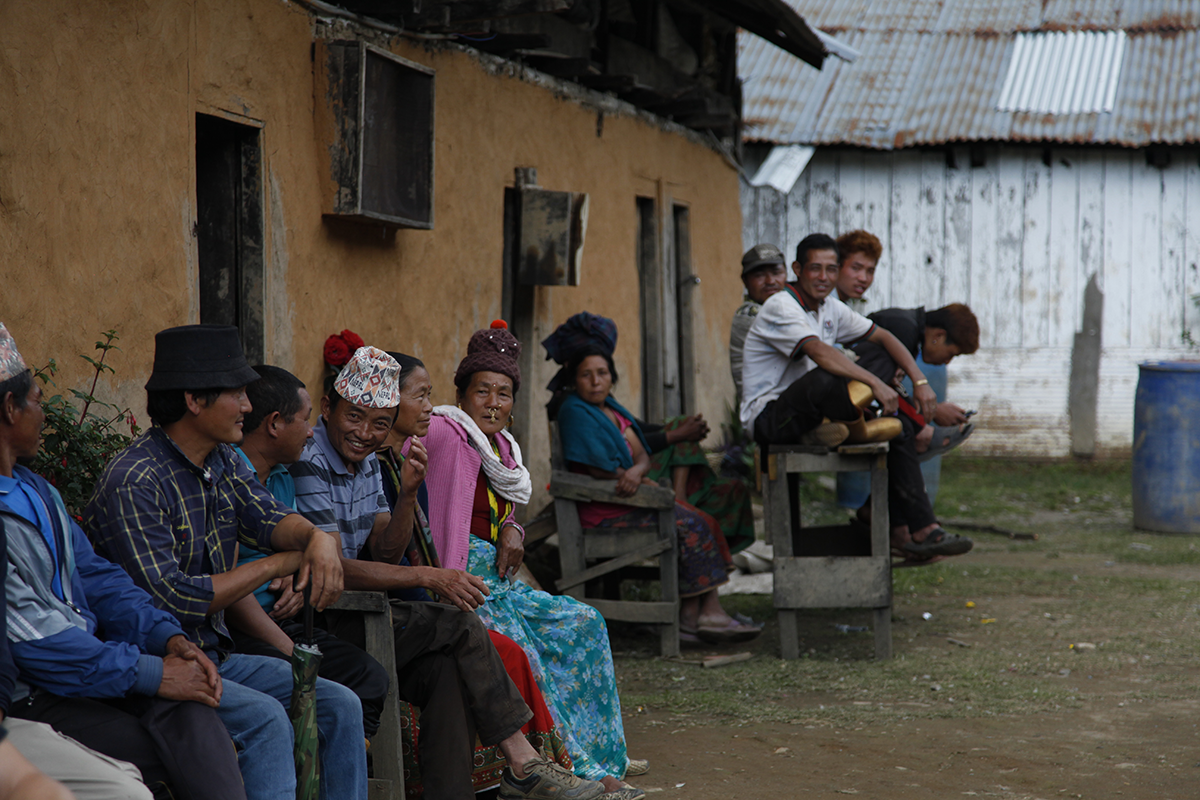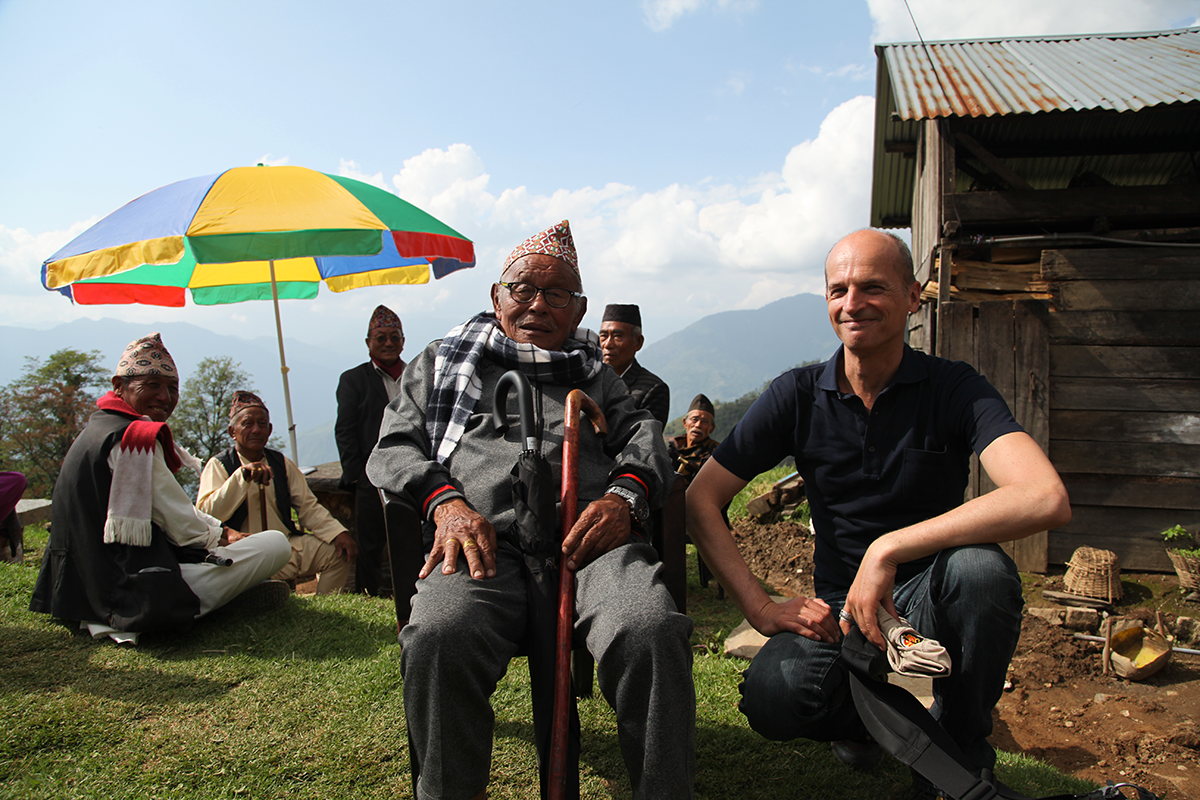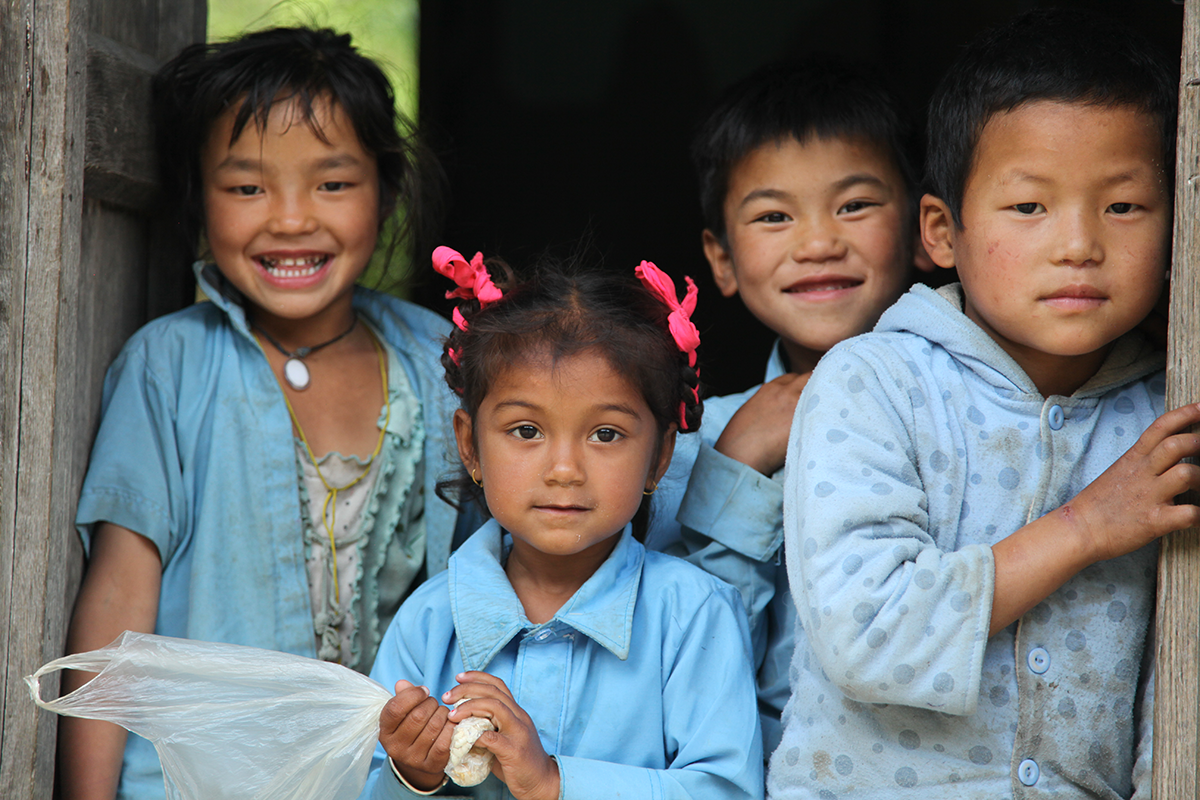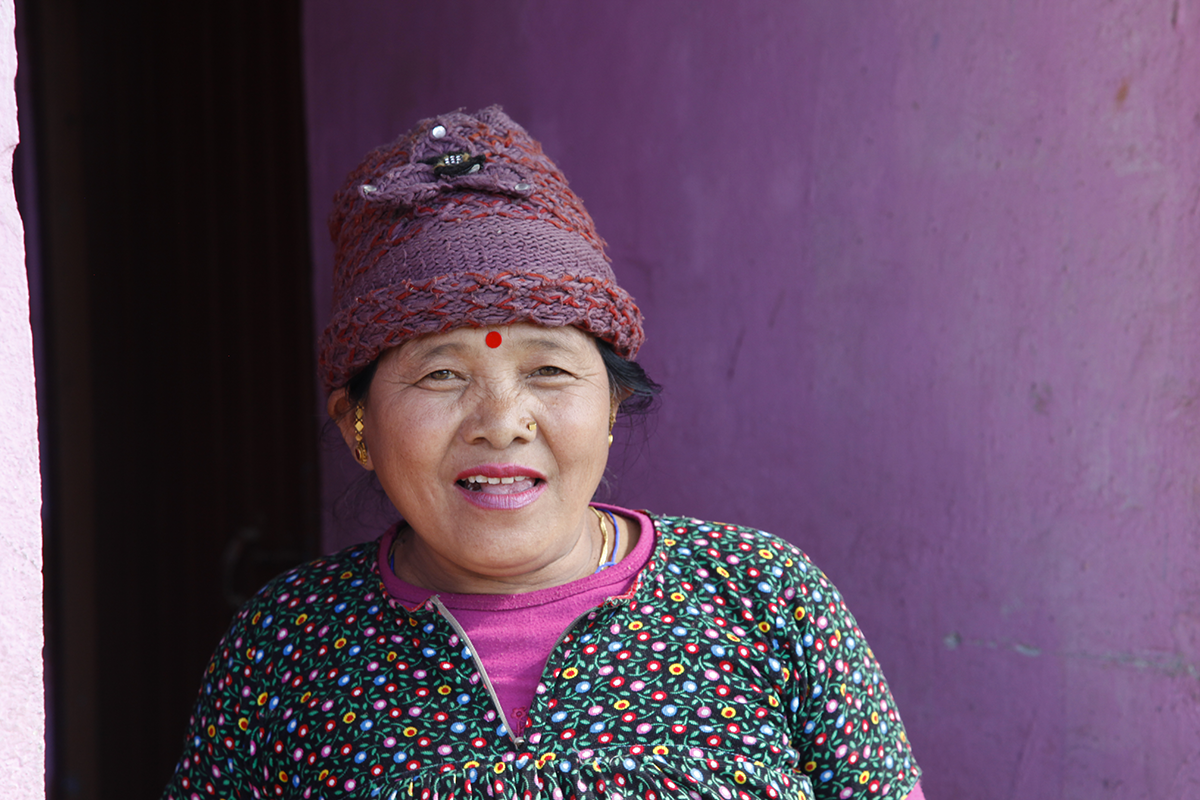A visit to a tea plantation always includes a tasting. This one took place in the dedicated tasting room, with light coming in from outside. Sometimes though, tastings can take place outdoors if the factory is too small, or doesn’t have the right equipment. With a bit of luck you can enjoy magnificent scenery while swirling the liquor around in your mouth. Here, in Pathivara (Nepal), a lovely stone table is used for tastings.
Nepal
Safe passage
I’ve finished selecting my first-flush Darjeelings – 12 premium teas in total. From Puttabong to Thurbo, Namring Upper and Highlands, they represent the best of what these mountains have produced during the season. Now I want to tell you about the steps that follow the purchase of a tea of exceptional quality. First, the tea is packaged up on the plantation itself, then transported by truck to the nearest airport. From there, it travels to Paris, and on to the Palais des Thés warehouses. A sample of the batch is then sent to the lab for analysis. Once we’ve received confirmation of its compliance with the Safetea standards that are the pride of Palais des Thés, it is distributed to our various stores. The journey from plantation to cup takes several weeks and cannot be rushed. It’s a mark of quality and safety.
Are you more Clonal Superb or China Exotic?
Indians use the name inherited from the British to describe tea leaves (see my previous blog post). However, in the past few years, they haven’t been content with the letters “FTGFOP” or even “SFTGFOP1”. So they’ve added more words, generally nice ones. Some have a specific meaning. Others sound pretty, and the producer uses them to indicate that this exceptional tea is worth an exceptional price, for the highest bidder.
The former include the words China, Clonal and AV2, which refer to the tea plant. They stand for a variety that comes from China (Camelia sinensis sinensis), a hybrid (the word clonal is therefore inappropriate in French), and the specific name of the variety (AV2 for Ambari Vegetative no. 2), respectively.
As for the latter, the imagination is the only limit when it comes to such terms as Exclusive, Delight, Exotic, Superb, Mystic and more. There’s also Wonder, Enigma and Euphoria. I bet that in the next year or two I’ll be offered Nirvana!
Tea researcher, a process of investigation
Before starting to work with tea, I dreamed of being a journalist. I liked the idea of finding out about people, asking them questions, understanding what they do, getting them to explain things that are sometimes complicated, and trying to make them comprehensible. I liked the idea of being an investigator, of gathering information, of putting my interviewee at ease and having an interesting conversation. I wanted to do a job that took me all over the world and let me meet people from all backgrounds and cultures, men and women who speak a different language, who have a different history from mine. I wanted to receive their message and transmit it. In the end, I created this role of tea researcher, which didn’t exist before. I could have stayed behind my counter in my tea shop, which I enjoyed, talking to customers, listening to them, helping them. But I wanted to do more, to investigate, to find out where the tea leaves come from. First I learned to taste, to recognise flavours and aromas; then I learned other languages. I was thirsty for knowledge, I wanted to discover an unexplored world, that of tea. So I packed my bags and I went to meet farmers, growers, traders, pickers and planters. I entered that world a little more with every trip. I took my time. I set out to meet the people who live in the mountains where tea is grown. I found them in the fields, in the village square, in front of the factory. I sat down with them, I rested. I listened, then listened some more. I recorded everything. And that is how, 32 years later, everything I found so rewarding and enjoyable in the job of a journalist, I find now, in my work as a tea researcher.
I wish you a real year!
We know that social media algorithms are programmed to put you in contact with similarly-minded people to make you believe that everyone shares the same views as you, and at the start of this new year, I’m making a resolution to spend less time on social networks, smart phones and tablets, because that’s not the real world. I wish you all more time spent meeting real people. For your delight. I wish you a real year!
A better world is within our grasp
What if we tried to think about our children? We all have immense power every time we spend our money. The power to make the world better. Spending money means encouraging people. Encouraging a producer, encouraging a distribution system. Encouraging good practice, encouraging healthy, unprocessed products, fairly traded, respecting people and the planet. We have the power to encourage artisans, co-operatives, farmers, town-centre shopkeepers, local producers. Nobody forces us to shop in big supermarkets, nobody forces us to push around trolleys loaded with industrially-produced foods, wrapped in plastic, containing mystery ingredients in addition to the sugar, preservatives and palm oil. We can consume better, and less. We can consume healthily. We can favour good producers.
And when we look at the labels, we might be surprised to see that the best is not always the most expensive (with tea, for example, a box of tea is often more expensive per kilo than a good quality loose-leaf tea sold by a specialist retailer). So what are we waiting for?
A farm on a human scale
Some teas are produced on a vast estate with up to a thousand people living on it. Some are produced by a co-operative of small producers. And some are produced on a simple farm, like here, at Pathivara. Different farms have different social structures, and I prefer the ones on a human scale. A far cry from the cliché of the planter living cut off from the world in a magnificent bungalow (inherited from the days of British rule), when tea is produced on a farm, villagers often spend the evening there too. They sit around together, chatting, chatting, chatting. Sometimes they drink, sometimes they play music, sometimes they dance. It’s life, quite simply.
With the “father” of Pathivara
Among the plantations worthy of attention recently is Pathivara, in Nepal. Here, I’m with the plantation’s father, the man who started it. In just a few years, he’s succeeded in producing delicious teas, so far with very modest resources. What’s more, the teas are certified organic. A new building is going up; I laid the first stone on my previous visit. It will house more sophisticated machinery, although the team is already producing some very fine teas. Since the start of June, I’ve bought three batches: Pathivara Classic, Pathivara Black and Pathivara Dragon Yeti – these mountains are full of poetry. Each tea is very different, with very varied aromatic profiles. Here, poetry and gastronomy come together.
Less plastic
I’m concerned about the state of the planet, and the proliferation of plastic is one example of this. We might think of tea plantations as idyllic places high in the mountains, some on steep slopes, far from cities, surrounded by beautiful countryside. And all that is true. But tea requires a lot of manpower, and many people live in villages around the plantations. These people buy products that are often packaged in plastic, and this plastic needs disposing of.
On the tea plantations, it’s not unusual to see rubbish lying on the ground between the rows of plants, simply because people don’t think about it and throw away a bag, a packet of cigarettes or biscuits, in the middle of the field. This waste accumulates! The ground is sometimes littered with it after people have eaten their meal. The best solution I’ve seen involves holding a litter-picking day, once a year, for all villagers, including children. The atmosphere is good-spirited, it makes people take more responsibility, and at school on the same day, they talk about the lifetime of the different types of rubbish. A plastic bag will last for 400 years!
My blog talks about encounters
My blog is about tea, but it’s also about meeting people. I didn’t know this lady. She was just standing outside her house, opposite a tea factory. I liked her pretty purple hat and the touches of purple under her coat set against the purple backdrop behind her. I knew nothing about this lady, except where she lived; we simply smiled at each other and I held up my camera – by way of asking her if I could take her photo – and she agreed. And there she was, and here she is. I’m so happy when I’m travelling, walking down the lanes of remote villages, or through the fields. I’m so happy when I photograph them, these men and women… we exchange a few words, we laugh and often we sit a while together, on a bench, a step, a stone… any place will do. And we get to know each other – just a brief encounter – then I go on my way again. And to share them with you, these faces, these moments… as I see it, that’s just as important.

